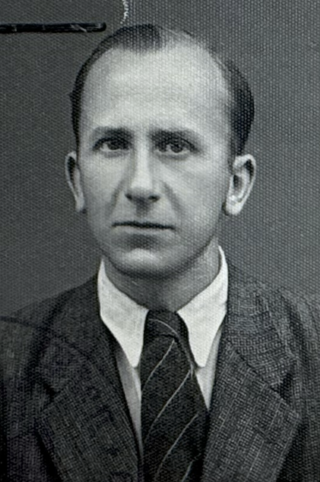Dr. h.c. Friedrich Wilhelm (Fritz) Eckert

Personalia
Born:
Died:
Profession:
Persecution:
Imprisonment 16.03.1938 - 02.04.1938,
Dachau concentration camp 02.04.1938 - 13.03.1939,
Imprisonment 13.12.1944 - 05.04.1945
KZ Number:
Honors:
Grand Decoration of Honor in Silver for Services to the Republic of Austria
Grand Decoration of Honor in Silver with the Star for Services to the Republic of Austria
Grand Decoration of Honor in Gold for Services to the Republic of Austria
Cross of Honor for Science and Art First Class
Grand Decoration of Honor in Gold for Services to the Province of Vienna
Golden Commander's Cross of Vienna, Lower Austria and Burgenland
Grand Cross of the Order of St. Sylvester
Commander with Star of the Pontifical Order of St. Gregory
Grand Cross of the Order of Malta with shoulder ribbon and star
Papal Privy Chamberlain
Officer's Cross of the French Legion of Honor
Grand Cross of Merit of the Federal Republic of Germany
Bavarian Order of Merit
Commander's Cross of the Royal Greek Order
Decoration of Honor of the University of Vienna
Appointment as professor
Honorary doctorate Dr. h.c. from the University of Pittsburgh (USA)
Golden Commander's Cross of the University of Vienna
Appointment as Kommerzialrat
Honorary citizen of Purkersdorf
Memberships
Curriculum Vitae
Friedrich Eckert, known as "Fritz", was born in Vienna as the legitimate son of the market commissioner Karl Eckert and Emilie, née Nigrin.
After attending elementary school and lower school, he attended the commercial academy and learned the merchant's trade. He was also involved in various Catholic organizations, in particular the Reichsbund für Jungend und Sport and the Kolping movement, and later, from 1933, in the Vaterländische Front, where he became the managing national secretary of the Vaterländische Front in Vienna. In this role, he played a key role in the fight against National Socialism in Vienna.
On March 12, 1938, despite his intensive struggle, Fritz Eckert witnessed the demise of free and independent Austria with the invasion of the German Wehrmacht. On March 16, 1938, he was arrested by the Gestapo for his unbending commitment to a free and independent Austria and deported on the first transport, the so-called Prominententransport, to the Dachau Concentration Camp on April 2, 1938, from where he was released on March 13, 1939, according to the Dachau Concentration Camp Records. He then organized aid campaigns for other victims of Nazi persecution, especially for priests and religious. On December 13, 1944, he was arrested again, as was his wedding priest, Chaplain Heinrich Maier, and transferred to the Vienna Regional Court as a prisoner on remand.
From February 15, 1945 until the end of the war, he was imprisoned in the Pichlarn Wehrmacht remand prison. The People's Court charged him with aiding and abetting high treason, subversion of military power and aiding and abetting the enemy, and he only escaped execution in April 1945 when Vienna was liberated.
After the war, he co-founded the Austrian People's Party (ÖVP) and joins the ÖVP Comradeship of the Politically Persecuted and Confessors for Austria. On 6 April 1946, he was awarded honorary membership of the student fraternity Amelungia. The President of the Austrian Economic Association and later Federal Chancellor Julius Raab appoints Fritz Eckert as his Secretary General, a position he holds until 1971.
Citations
Krause, Peter/Reinelt, Herbert/Schmitt, Helmut (2020): Farbe tragen, Farbe bekennen. Katholische Korporierte in Widerstand und Verfolgung. Teil 2. Kuhl, Manfred (ÖVfStG, Wien) S. 58/59.
Wiener Stadt- und Landesarchiv (WStLA)
ÖVP-Kameradschaft der politisch Verfolgten und Bekenner für Österreich
Archiv Ritterorden vom heiligen Grab zu Jerusalem (OESSH)
Wikipedia unter de.wikipedia.org/wiki/Fritz_Eckert_(Politiker,_1911)
